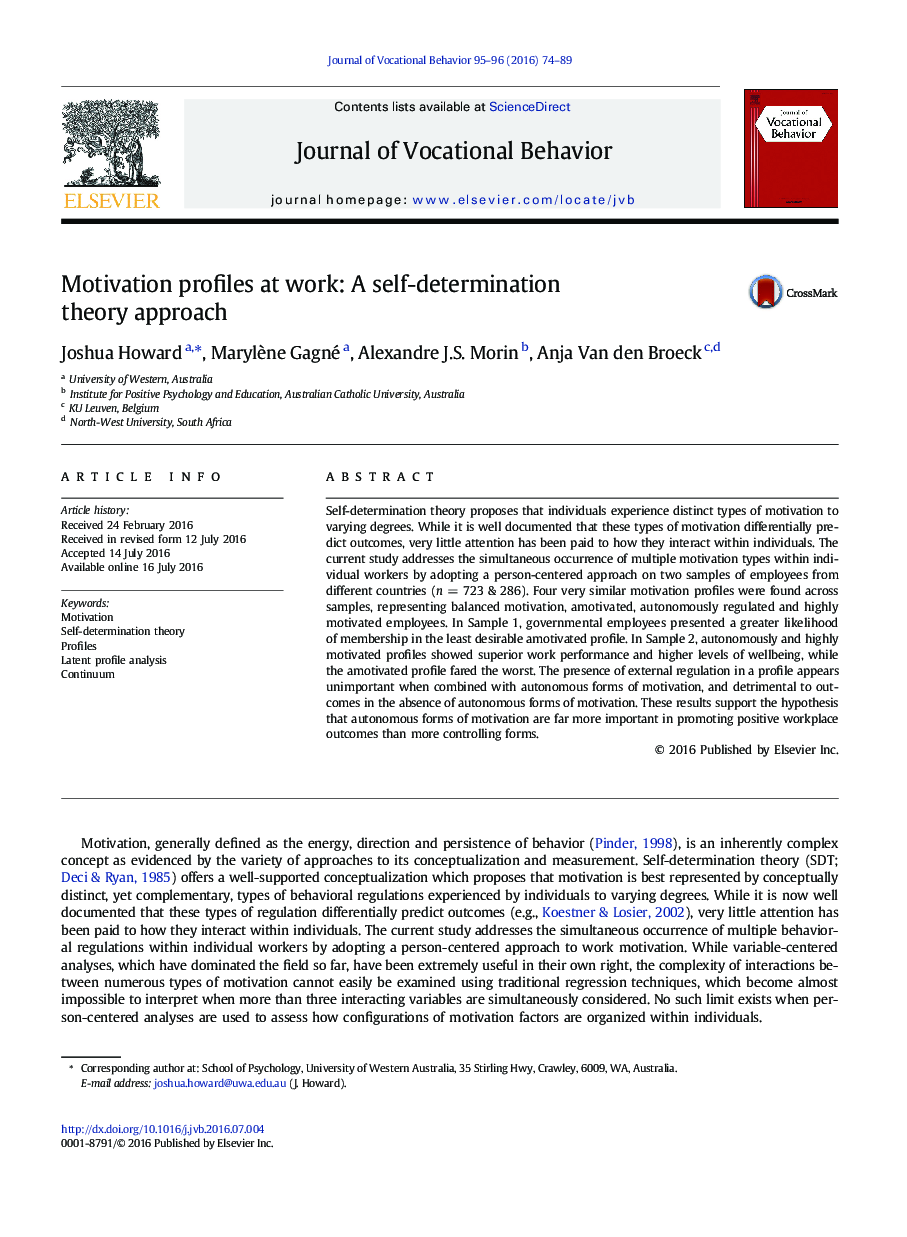| Article ID | Journal | Published Year | Pages | File Type |
|---|---|---|---|---|
| 886709 | Journal of Vocational Behavior | 2016 | 16 Pages |
•A multinational person centered analysis of SDT motivation•Profiles replicated across samples•Autonomous motivations influence performance and wellbeing more than controlled.•Quality of motivation is more important than quantity.
Self-determination theory proposes that individuals experience distinct types of motivation to varying degrees. While it is well documented that these types of motivation differentially predict outcomes, very little attention has been paid to how they interact within individuals. The current study addresses the simultaneous occurrence of multiple motivation types within individual workers by adopting a person-centered approach on two samples of employees from different countries (n = 723 & 286). Four very similar motivation profiles were found across samples, representing balanced motivation, amotivated, autonomously regulated and highly motivated employees. In Sample 1, governmental employees presented a greater likelihood of membership in the least desirable amotivated profile. In Sample 2, autonomously and highly motivated profiles showed superior work performance and higher levels of wellbeing, while the amotivated profile fared the worst. The presence of external regulation in a profile appears unimportant when combined with autonomous forms of motivation, and detrimental to outcomes in the absence of autonomous forms of motivation. These results support the hypothesis that autonomous forms of motivation are far more important in promoting positive workplace outcomes than more controlling forms.
